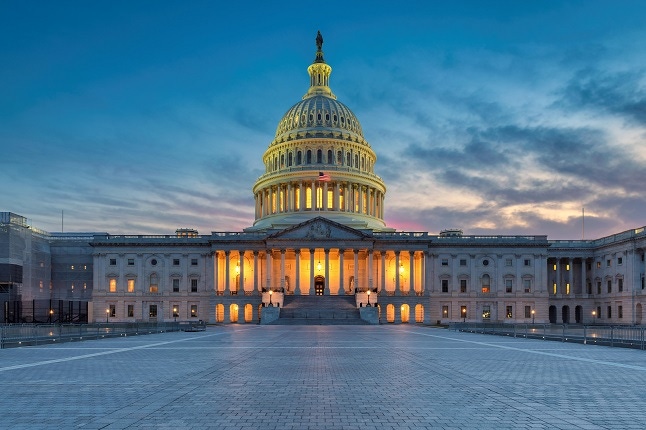October 2022 Global Tech Policy Bulletin: From Twitter’s New Management to Big Tech Lobbying Scandals
Last month in global tech policy: Elon Musk conquers Twitter; the CHIPS Act lurches into action; Big Tech lobbyists caught red handed in Strasbourg; cybersecurity; the Lord of the Rings; and more.

Hello and welcome back to Citizen Tech, InformationWeek’s monthly policy roundup. In this edition, we’re looking at Elon Musk’s acquisition of Twitter; the next steps for Biden’s semiconductor policy; recent developments in cybersecurity; Starlink broadband access in Ukraine; a lobbying scandal uncovered at the European Parliament; how modern technology is like magic and our geopolitics like the Lord of the Rings, per Bruno Maçães; an antitrust vote in the House of Representatives; and more.
Next Word for The Bird
Well, he did it. As the New York Times announced at the end of the month, Elon Musk has acquired Twitter, at a cost of $44 billion and months of negotiations with Twitter and the SEC. One of his first moves was to fire four major officers, including the CEO and general counsel. Now Musk’s job is to defend his empire from the massive debt he took on to acquire it. According to the Times, it will take $1 billion per year just to keep up with the interest. Musk has well-heeled friends at firms like Andreesen Horowitz (a16z) and others that have announced their willingness to help keep the new Twitter afloat.
This latter point has political significance. The obvious political battle, which Musk evidently won, was one of content moderation. The Biden administration and other major governments (the Von der Leyen Commission in Brussels, notably) have made misinformation and disinformation a central focus for tech policy. Twitter, pre-acquisition, had assisted in that effort, flagging, or suppressing what it judged to be misinformation. Naturally, this came with problems, there being no objective measure for every statement -- or worse, every opinion -- expressed in this public forum; conservatives in particular had long complained that “misinformation” was a conveniently malleable charge, and the decision-making intentionally opaque. Musk, however, calls himself a “free speech absolutist.” That’s good news for dissenters, but it also means that all kinds of noxious speech can seep into your timeline sooner than you’d like: calls to murder or genocide, sexually or ethnically charged abuse, outright lies from foreign propaganda machines. The Democrats in particular are in a panic. One party bigwig told POLITICO that the new management had “huge and terrible ramifications.” One of these, of course, could be Donald Trump’s triumphant return from Twitter exile, whether or not he’s serious about running in 2024.
Brussels is watching this with disapproval as well. When Musk announced that “the bird is free,” the EU’s internal market commissioner Thierry Breton shot back that “in Europe, the bird will fly by our rules.” Pity the American civil servants, most of them Democrats, who may eventually find themselves defending Musk in trade and communications meetings with the European Commission.
Musk did announce that he was forming a content oversight council for the new Twitter, and that he would not change moderation standards before that council met. But Musk’s open alliance with a16z, among others, and his proposal to charge $8 (originally $20) per month for a blue check, suggest that speech may be freer on Twitter the more money you care to spend for it.
Next Steps for CHIPS
The White House is not ready to take on the challenge of online speech and has released no statements on the subject; it’s busy preparing for the midterms and recovering from the grueling work of passing the CHIPS bill. A who’s who of Federal tech leadership met on October 7 as part of the steering committee that will oversee the new semiconductor policy, including NSA’s Jake Sullivan, secretary of the Treasury Janet Yellen, commerce secretary Gina Raimondo, and a brigade of assistant secretaries and chief advisors. No industry leaders were invited. The group discussed Secretary Raimondo’s manufacturing incentive roadmap, as well as the diplomatic and military implications of the new legislation (supply chains, defense systems, etc.).
The White House Talks Cybersecurity
On the 11th, the White House released a kind of greatest hits tape of its cybersecurity triumphs so far, from new cybersecurity protocols at TSA (the memory of the Colonial Pipeline attack hovering between the lines like a ghost) to $185 billion in grants to state and local cybersecurity efforts in FY2022. To be clear, this is election season propaganda, but the victories they chose to celebrate are interesting. The National Institute of Standards and Technology (NIST) is developing new post-quantum encryption standards, which should be ready by the next presidential election. The White House also boasted of its ban on a number of cryptocurrency mixers, frequently used to launder ransom money. There’s no love lost between Biden and the crypto sector, and apparently no one thinks a rapprochement would get any more Democrats elected.
Later in the month, national cyber director Chris Inglis hosted a number of senior civil servants from across departments and industry leaders to discuss the cybersecurity implications of a new electric vehicle ecosystem. This was mainly a forum for discussion, and thus not terribly exciting, but serious money is in play: $7.5 billion in electric vehicle charging infrastructure alone, plus “billions more” in investments and incentives for the sector. The conclusions the meeting drew have yet to be announced.
Big Tech in Trouble at the House
On September 30 the House of Representatives fired a warning shot at Big Tech firms like Meta and Amazon, by way of new antitrust regulations (via AP). The bill would hand federal prosecutors the ability to determine where Big Tech cases may be litigated. Generally, Big Tech lawyers try their best to have their cases heard by the northern Californian courts near their own headquarters; these judges tend to favor the local gentry. The bill would also raise court fees for big companies while lowering fees for small and medium-sized companies. The Biden administration has smiled on this bill, which both enrages Republican Congressmen and puts them in a tricky spot, defending the rights of the same tech behemoths they consider their enemies in the information war. AP notes that the Democrats, too, have to walk a thin line -- social media platforms are such a fixture of their constituents’ lives that any unnecessary complication might sway voters against incumbent lawmakers. Nevertheless, the bill passed by a wide margin, 242 to 184, and now goes to the Senate.
War Bulletin No. IX
The Russian offensive has lost momentum, and as troops pull back from the Kherson front and punitive shellings replace physical occupation, the Kremlin prays for a cold winter. The European Commission has been scrambling to find a way to keep people from freezing over the next six months in the absence of Russian gas. This month they proposed a plan called REPowerEU, for the EU and neighbors like Ukraine and Kosovo, which would rush new contracts with energy suppliers (including companies in the US, Norway, and Algeria). The plan includes a “rapid roll out” of solar and wind projects, and long-term goals of energy diversification by 2030.
The most exciting part of the plan, from a tech perspective, is a proposed hydrogen accelerator that would produce 10 million metric tons of renewable hydrogen in usable form. But that surely won’t be running before 2025 or so. The REPowerEU plan more or less states that the brunt of this winter will fall on individual households, who will pay dearly for heating and electricity.
In the meantime, we must return to Elon Musk, who has variously offered Starlink satellite internet (from SpaceX) to beleaguered Ukraine and cozied up to the Kremlin over the past few months. A strange tweet on October 15 seemed to announce that Musk would continue funding Starlink services “for free,” at enormous expense. He then (according to reports by CNN) asked the Pentagon for help, saying that SpaceX couldn’t manage the cost alone. The price of free internet service for the whole country is astronomical, some $400 million over the course of a year (not counting the end of 2022), according to CNN. Musk claimed that SpaceX couldn't afford to send more broadband terminals, although CNN notes that connectivity, not actual terminals, is the major expense. In any case, Musk’s late “pro-peace” stance, and his Twitter polls and exchanges with the likes of Russian senior minister Dmitri Medvedev, have enraged Kyiv. Starlink broadband was always going to be spotty, given the ongoing war; it may go away altogether.
In Brussels: Biden and Data Protection
Since 2020, the European Court of Justice has been concerned with the extent to which American security forces can pry into European data flows. This year, the European Commission and the White House arrived at a compromise on how to protect European data, which Biden made official by executive order on October 7. The order enacts a complicated new compliance framework, including a review court for European citizens who feel their privacy rights, as established by GDPR, have been infringed on.
In Strasbourg: Big Tech Lies to Parliament (maybe)
Three members of the European Parliament accused eight Big Tech firms including Meta, Google, and Amazon of lying during hearings concerning upcoming digital market legislation, according to POLITICO. They allege that the companies’ lobbyists claimed to be representing small and medium-sized enterprises, which are favored by the yet-to-be-enacted Digital Markets Act (DMA) and Digital Services Act (DSA). If that’s the case, the firms in question could face fines, and potentially scare off any sympathetic MEPs.
Paul Tang (Netherlands, PvdA) told POLITICO that "This is foul play ... It violates the entirety of transparency on lobbying; you need to identify yourself, we need to know to know as MEPs or as other officials in the European Union who we deal with."
Tech and Tolkien
Portuguese writer and international affairs grandee Bruno Maçães may have been born with a rugged, Northern European imagination. Last time we reported on him he was comparing semiconductors to the ring in Wagner’s opera cycle. This month he took to the New Statesman to compare modern technology (and geopolitics) with the dark magic of The Lord of the Rings.
“In a technological society, as we pursue our fantasies unimpeded by the physical world, the human soul is suddenly in charge of our actions. Generous and noble motives are magnified, but so too are our darkest fantasies of power and cruelty... The world order is being designed and redesigned. Vladimir Putin speaks in these terms...”
Maçães’ libretto may have to wait until he’s back from Mount Doom.
What to Read Next:
From Turmoil in Iran to Biden’s Big Tech Impasse
About the Author(s)
You May Also Like







